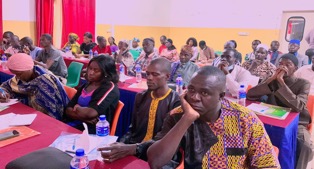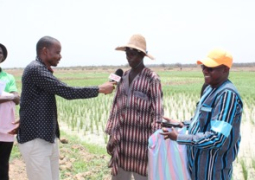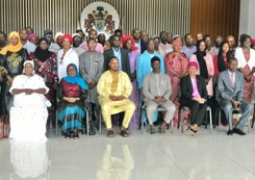
The three-day training held at the National Nutrition Agency (NaNA) Conference Centre, Bakau, was graced by over 80 Christian and Islamic religious teachers drawn from 43 schools across Region one.
The training exposed participants to different topics such as sexual and reproductive health (anatomy and physiology, puberty and reproduction, menstruation, pregnancy prevention, unsafe abortion, contraceptive utilisation, sexual and reproductive health law issues and education, all from day one.
Participants also discussed issues relating to Gender Based Violence (GBV), societal and cultural values and attitudes, guidance and counseling, and life skills as well as a presentation.
At the event, Momodou Jeng, Director of Curriculum Research Evaluation and Development Directorate (CREDD) under MoBSE, while congratulating the CHE team for their dedication, reminded that the project seeks to address critical issues and how to intervene in addressing some of the existing gaps around CHE or reproductive knowledge through education.
While thanking the IDRC Canada for funding the project, Jeng noted that ‘if they fail to address Comprehensive Health Education-related issues, the consequences will be detrimental to the youth.
He made reference to increase in early marriage, illegal abortion, spread of STIs, which he said, have caused drawbacks in the delivery of education in the country.
He revealed that some of the data of the recently conducted baseline and midline research report, revealed that out 1500 students targeted, half of them do not know how, when and where a girl can get pregnant.
This, he said, is amazing.
Jeng also disclosed that 85% of them have knowledge about HIV/AIDS, with only a few of them, 17%, knowing about Sexually Transmitted Infections such as syphilis, or gonorrhea diseases.
“This is not only affecting them but also affecting probably their family members. But this will create a great opportunity or increase their knowledge when you teach them about how these STIs can be contracted.”
Madam Phebian Ina Grant Sagnia, Principal Investigator of the Comprehensive Health Education project, applauded the religious teachers for their attentiveness and making the training important in their course of duties.
The training, she added, was based on the recommendations and their requests during the dissemination of the midline research report, adding that this is in fulfillment of their promise as it is part of their intervention package.





